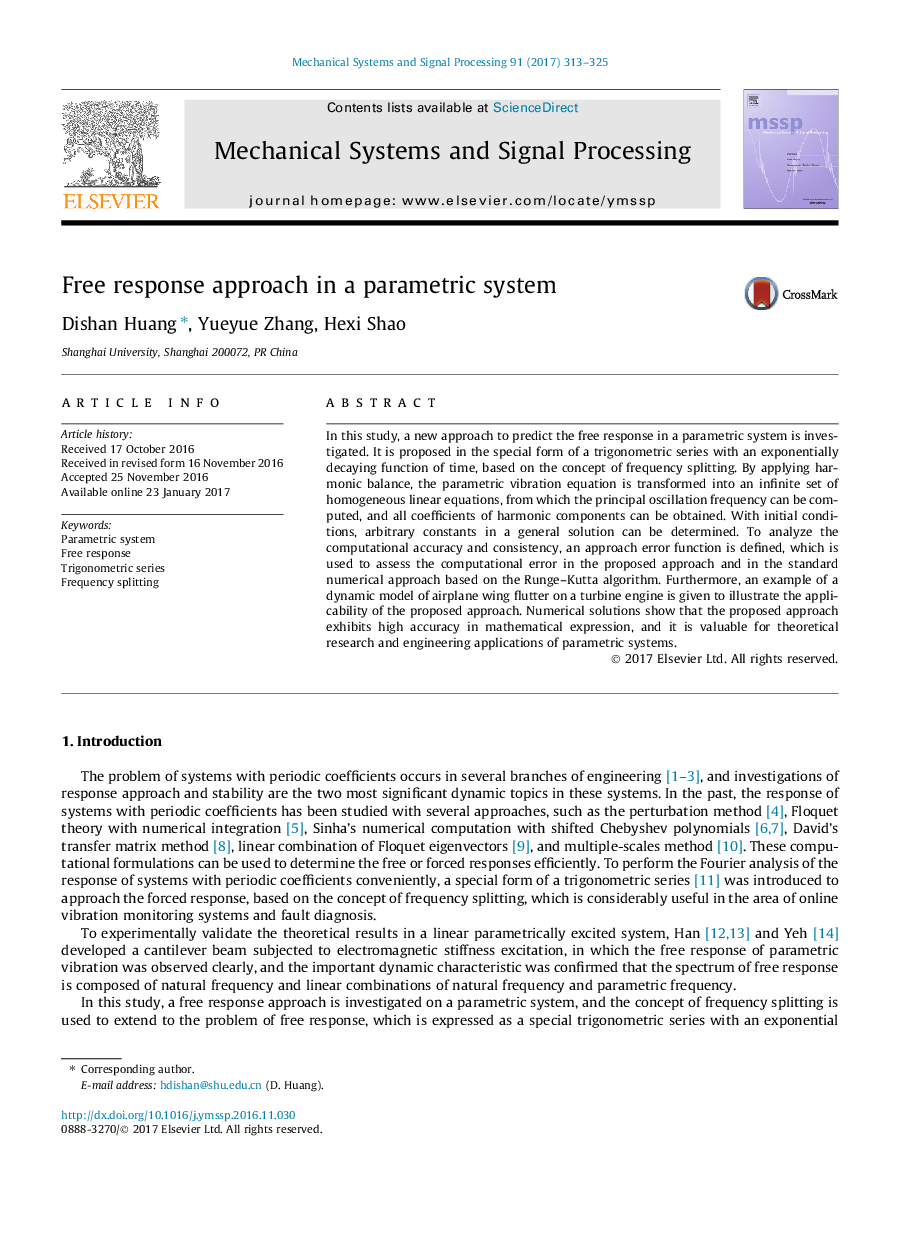| Article ID | Journal | Published Year | Pages | File Type |
|---|---|---|---|---|
| 4977023 | Mechanical Systems and Signal Processing | 2017 | 13 Pages |
Abstract
In this study, a new approach to predict the free response in a parametric system is investigated. It is proposed in the special form of a trigonometric series with an exponentially decaying function of time, based on the concept of frequency splitting. By applying harmonic balance, the parametric vibration equation is transformed into an infinite set of homogeneous linear equations, from which the principal oscillation frequency can be computed, and all coefficients of harmonic components can be obtained. With initial conditions, arbitrary constants in a general solution can be determined. To analyze the computational accuracy and consistency, an approach error function is defined, which is used to assess the computational error in the proposed approach and in the standard numerical approach based on the Runge-Kutta algorithm. Furthermore, an example of a dynamic model of airplane wing flutter on a turbine engine is given to illustrate the applicability of the proposed approach. Numerical solutions show that the proposed approach exhibits high accuracy in mathematical expression, and it is valuable for theoretical research and engineering applications of parametric systems.
Related Topics
Physical Sciences and Engineering
Computer Science
Signal Processing
Authors
Dishan Huang, Yueyue Zhang, Hexi Shao,
